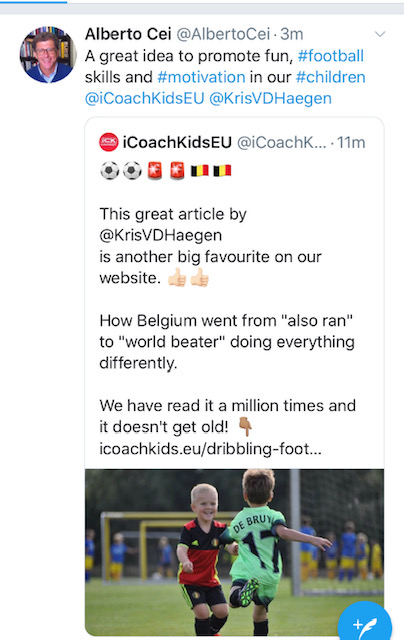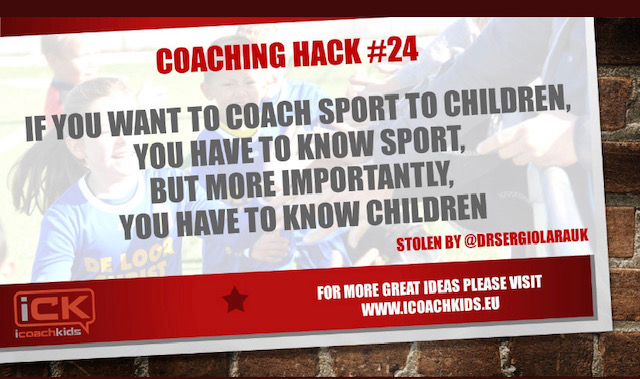Today report of the newspapers laRepubblica about the Italian soccer schools.
“At the start, the ambition of all is the bluet-shirt and this feeds the business of the soccer schools: 7,189 in Italy, impressive number when compared to middle school (8 thousand) or elementary (16 thousand). The annual fees range from € 300 to 900 and provide revenues to the schools with many zeros. Sport clubs often small, that contribute to the children training and growth. Antonio Piccolo, instructor of the school football Arci Scampia ( three fields with synthetic grass, 500 subscribers), explains: ” the boys less good do not have to burn the dreams, but neither raise false illusions. We must teach them that in life there is more: the study, work, be better citizens . They have as reference the television or the millions of Balotelli. They play because they want to have success, they re always less those who do it for fun. Instead, the football is beautiful because you share goals with a group of friends, because it gives emotions even in Excellence and Promotion championships, Sundays with friends. It is legitimate to dream, but the boys need to be protected. First of all, from mothers and fathers, who often instead seek redemption of their lives through the children. Then from some people that roam the fields : Fifa agents are all here, all approaching the parents, all are talent scouts. In a neighborhood like ours, we have an extra duty. ”
The academies are divided into three levels of quality. 73% are basic centers. To get the status of a football school “recognized” need qualified coaches, a doctor, adequate facilities (24% of the total). Higher still are the football schools “specialized” (232, 3% ) have agreements with school institutions and a psychologist who meets parents, coaches and managers. Says professor Alberto Cei , sports psychologist: ” The biggest challenge for the clubs is to manage the parents. As long as the children 8-9 years they are quiet. Then, there is growing anxiety to have in house the new Totti and even the grandparents begin to complain. They protest if their boys is playing in a mixed team, with the girls, they think ‘why to me?” Meetings with the psychologist are useful to build a positive atmosphere, to raise the quality of teaching .”






